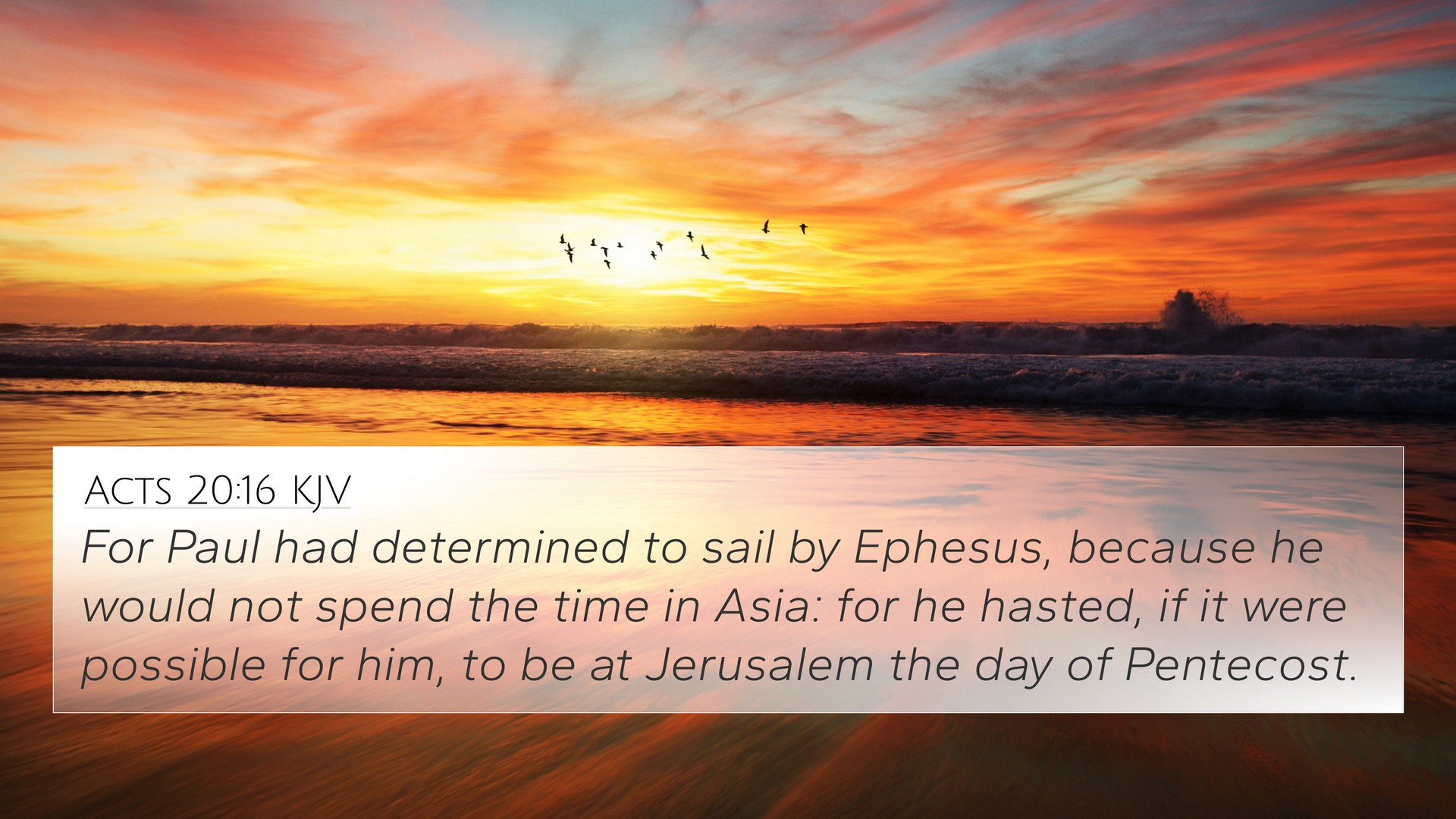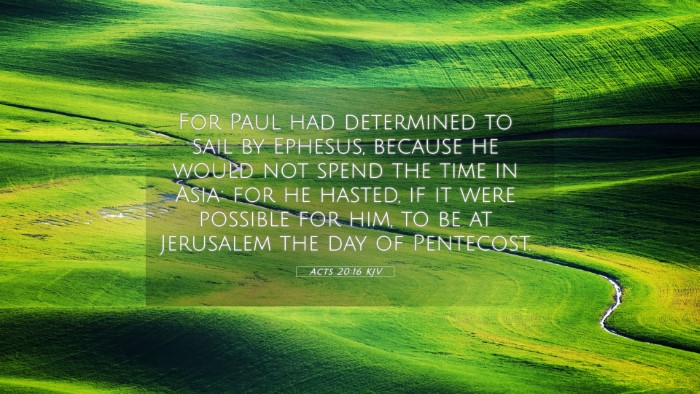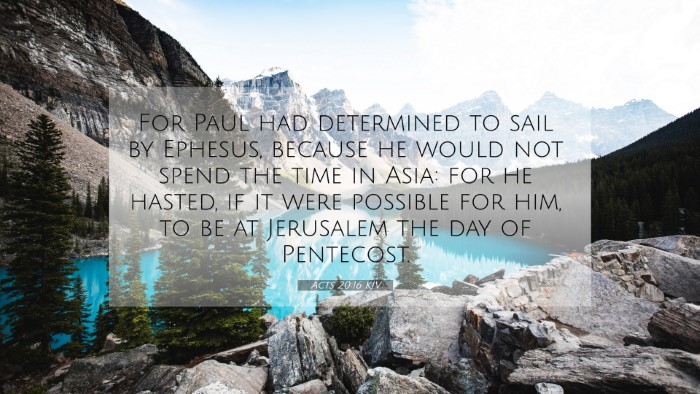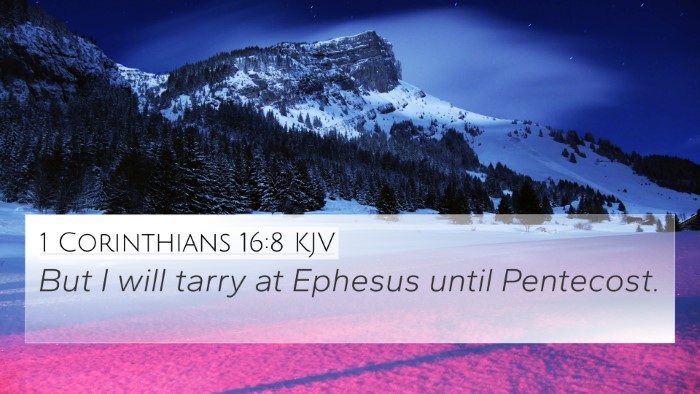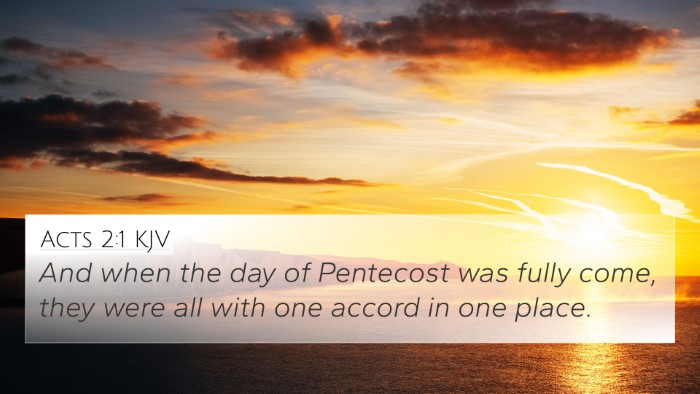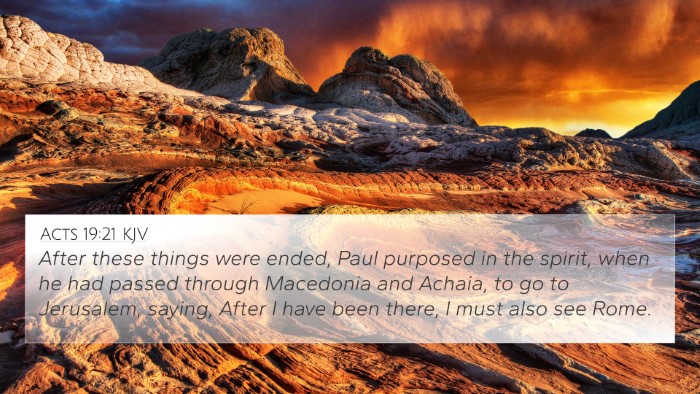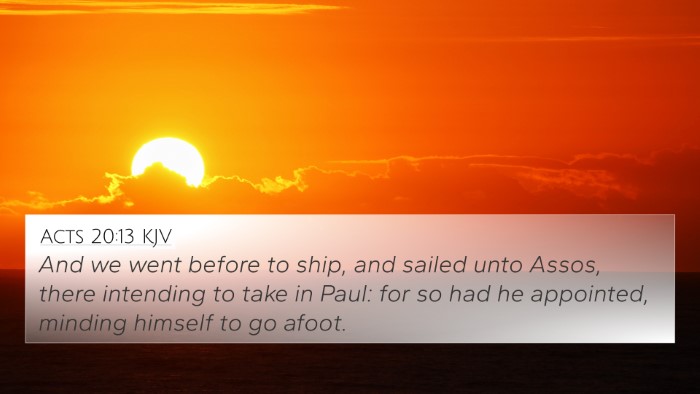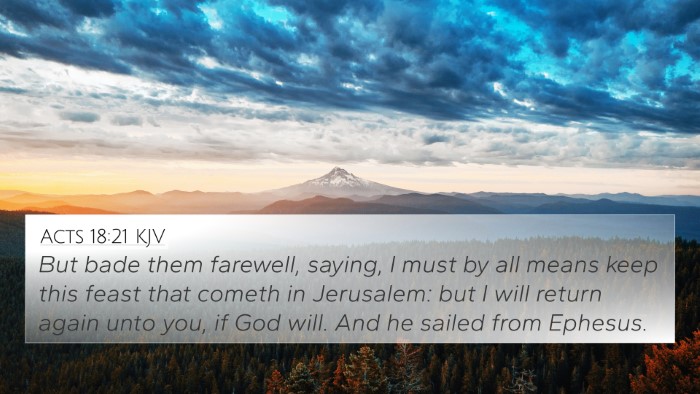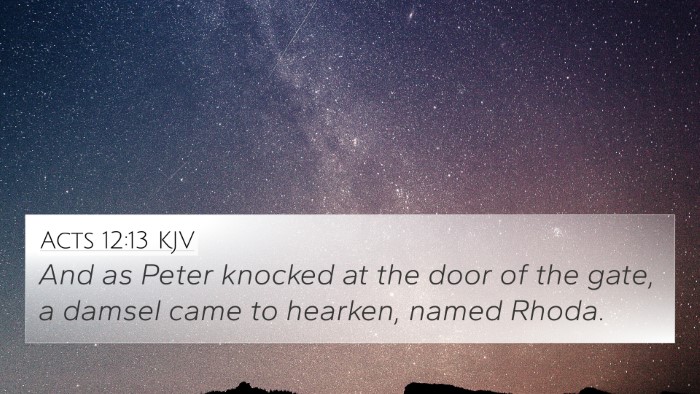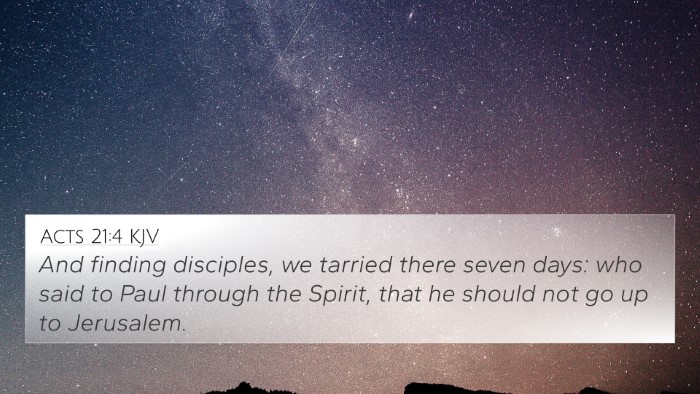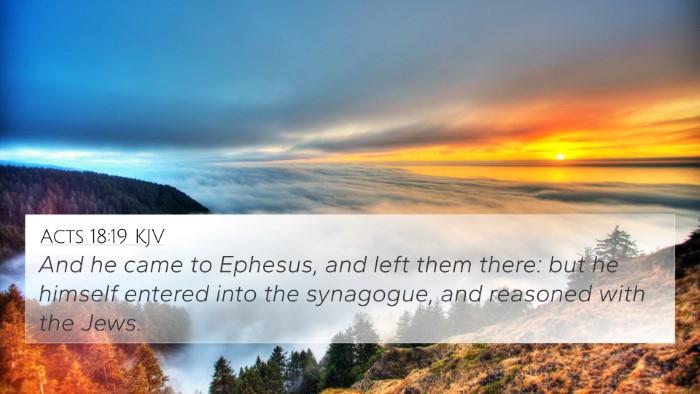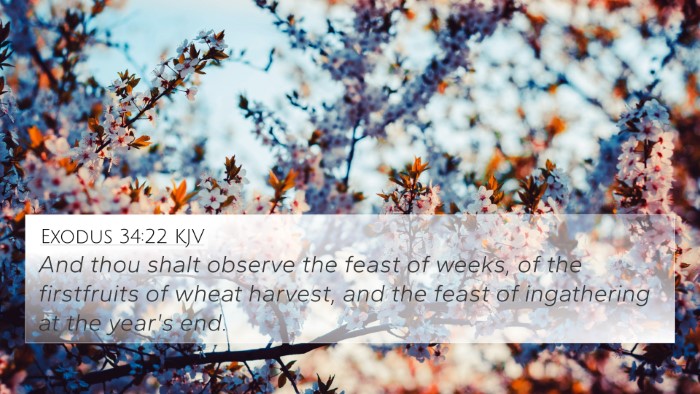Understanding Acts 20:16
Acts 20:16 states, "For Paul had determined to sail by Ephesus, because he would not spend the time in Asia: for he hasted, if it were possible for him, to be at Jerusalem the day of Pentecost." This verse encapsulates significant themes related to Paul's missionary journeys, his dedication to evangelism, and the urgency of fulfilling his divine appointments.
Theme Analysis
The verse can be analyzed in the context of several important themes:
- Mission and Purpose: Paul's decision illustrates the missionary zeal that characterized his ministry. He prioritized his journey to meet spiritual obligations over personal comforts.
- Timeliness and Urgency: The mention of Pentecost highlights the urgency that Paul felt, showing that he aimed to be in Jerusalem for a significant event in the early church.
- Leadership and Planning: Paul's determined approach exemplifies strategic planning in leadership, guiding others while pursuing his own spiritual goals.
Commentary Insights
Matthew Henry's Commentary: Henry notes that Paul's intention to bypass Ephesus signifies a singular focus on reaching Jerusalem, emphasizing how the celebration of Pentecost holds spiritual importance for the early Christians. His commentary points out Paul’s desire to avoid delays that could hinder the fulfillment of his mission.
Albert Barnes’ Notes: Barnes draws attention to the logistical realities of Paul's travels, discussing the risks and decisions involved in his route. He highlights Paul's focus on gospel priorities and maintaining a certain pace to reach his destination, encouraging readers to assess their own spiritual journeys in terms of urgency and commitment.
Adam Clarke’s Commentary: Clarke expands on the cultural and religious significance of Pentecost, providing insight into why Paul would race to Jerusalem. He emphasizes that Paul's actions reflect a deep-seated reverence for Jewish traditions while carrying a broader mission of spreading the gospel to both Jews and Gentiles.
Cross-References for Acts 20:16
This verse finds numerous connections within the Bible that together enhance its understanding through comparative analysis. Some relevant cross-references include:
- Acts 2:1: The account of the Pentecost event that Paul aims to attend.
- Romans 1:16: Paul's commitment to present the gospel first to the Jews, underscoring his intent to be present during significant Jewish festivals.
- Acts 18:21: Paul's previous focus on returning to Jerusalem aligns with his intentions seen in this passage.
- 1 Corinthians 16:8-9: Paul expresses a desire to stay in Ephesus until Pentecost, showing his connection to the festival and his mission.
- Acts 19:21: Similar determination and planning with regard to travel and mission work.
- Galatians 4:4: Discussing the appropriate timing of God's plans which aligns with Paul's urgency.
- Acts 20:22-24: Paul's comprehensive commitment to his mission even amidst persecutions, illustrating his resolve to complete his journey.
Inter-Biblical Insights
Thematic connections between Paul’s journey and the expansive narrative of the Scriptures are critical in understanding the urgency of Acts 20:16 within the broader context of the Bible.
- Linking Old and New Testament Themes: The festivals of Jerusalem have their roots in the Old Testament, serving both as a religious celebration and a fulfillment of prophecy.
- Paul and the Prophets: Just as the Old Testament prophets were called to fulfill divine missions, Paul exemplifies this prophetic tradition in the New Testament through his dedication to the gospel.
- Connection to Apostolic Teaching: Paul's urgency reflects his understanding of the teachings of Jesus and the importance of sharing the Good News widely.
Conclusion
Acts 20:16 serves as a potent reminder of the importance of timing, planning, and dedication in the life of a Christian leader. As we explore the interconnectedness of Scripture through cross-referencing, we uncover deeper meanings that speak to our own spiritual journeys. Through studying the actions and beliefs of Paul, we are encouraged to evaluate our priorities and commitments in our own engagements with the faith.
Tools for Further Study
To delve deeper into the themes of Acts 20:16 and its context, consider utilizing:
- Bible concordance: To find specific references and themes related to Paul’s journey.
- Cross-reference Bible study: This method can aid in drawing connections between Acts and other books of the Bible.
- Bible reference resources: Leverage commentaries and study guides for deeper insights into the text.
